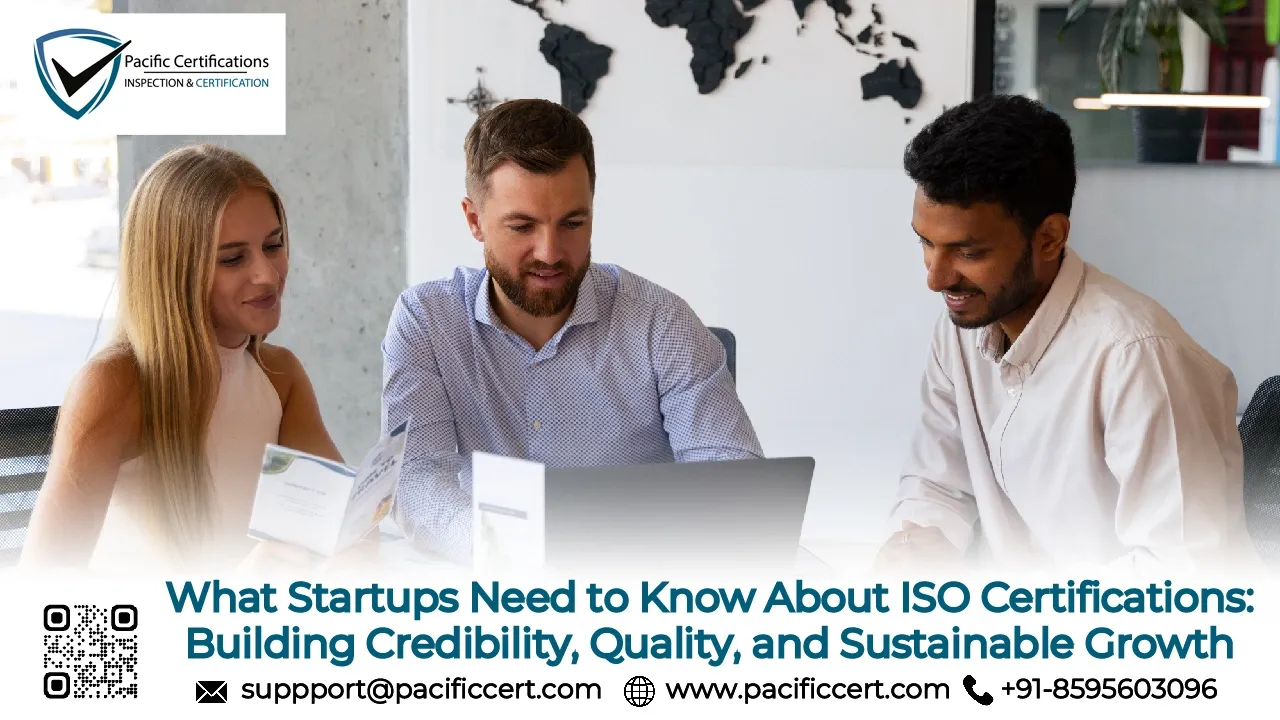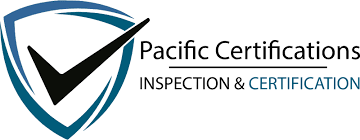What Startups Need to Know About ISO Certifications?

Introduction
The building block of a successful startup is trust. While there is a set formula to increase the quality of a product or the efficiency of the overall business, instilling faith among the masses regarding the startup’s products requires time. In a fast-paced world, it becomes absolutely necessary to establish your company’s credibility as quickly as possible to take the lead in the sector; this is where ISO certification comes into the picture. In this blog we will give you a complete overview of ISO certifications, their fundamentals, key benefits, and procedures.
In this blog, we’ll explore what ISO certifications are, the benefits for startups, and how you can leverage these certifications to achieve sustainable growth. We’ll also highlight specific ISO standards that are most relevant to startups and explain how to integrate them into your business practices.
What is ISO Certification?
International Organization for Standardization (ISO) certification establishes credibilityand trust among consumers, clients and other business partners. In today's international marketplace, such a designation validates that an organization adheres to global standards of quality assurance, manufacturing and business. For enterprise organizations, understanding what ISO certification entails can help to optimize business practices and inspire confidence in their interested parties. In this article, we define ISO certification, explain why a business might want to pursue it and provide a step-by-step guide for earning a particular certification.
At pacific certifications, we help businesses issue International Standards, such as ISO 9001 and ISO 14001 which helps them establish credibility, quality and improves efficiency.
ISO certifications are designed to help businesses improve their processes, reduce risk, and ensure their products and services meet both customer and regulatory requirements.
Why ISO Certification Matters for Startups?
ISO was founded with the idea of answering a fundamental question: “What's the best way of doing this?”
It started with the obvious things like weights and measures, and over the last 50 years has developed into a family of standards that cover everything from the shoes we stand in, to the Wi-Fi networks that connect us invisibly to each other.
Addressing all these and more, International Standards mean that consumers can have confidence that their products are safe, reliable and of good quality. ISO's standards on road safety, toy safety and secure medical packaging are just a few of those that help make the world a safer place.
Regulators and governments count on ISO standards to help develop better regulation, knowing they have a sound basis, thanks to the involvement of globally-established experts.
Key ISO Certifications for Startups
When it comes to ISO certifications, startups may find the following certifications most beneficial:
ISO 9001:2015 - Quality Management Systems
ISO 9001 is a globally recognized standard for quality management. It helps organizations of all sizes and sectors to improve their performance, meet customer expectations and demonstrate their commitment to quality. Its requirements define how to establish, implement, maintain, and continually improve a quality management system (QMS).
ISO 14001:2015 - Environmental Management Systems
ISO 14001 is the internationally recognized standard for environmental management systems (EMS). It provides a framework for organizations to design and implement an EMS, and continually improve their environmental performance. By adhering to this standard, organizations can ensure they are taking proactive measures to minimize their environmental footprint, comply with relevant legal requirements, and achieve their environmental objectives. The framework encompasses various aspects, from resource usage and waste management to monitoring environmental performance and involving stakeholders in environmental commitments.
ISO 27001:2022 - Information Security Management Systems
Data protection is a critical concern for any business. ISO 27001 helps startups safeguard sensitive information and comply with data protection regulations, ensuring that your company is trusted with customer data.
ISO 45001:2018 - Occupational Health and Safety Management Systems
If your startup involves a physical workspace or operational risks, ISO 45001 helps manage occupational health and safety, ensuring a safe environment for your employees.
ISO 22000:2018 - Food Safety Management Systems
If you're in the food industry, ISO 22000 helps you maintain high standards for food safety, ensuring that your business meets global safety regulations.
ISO 50001:2018 - Energy Management Systems
ISO 50001 is based on the management system model of continual improvement also used for other well-known standards such as ISO 9001 or ISO 14001. This makes it easier for organizations to integrate energy management into their overall efforts to improve quality and environmental management.
What is the ISO Certification Process for Startups?
The process typically involves several key steps:
- Understanding the Standards: Familiarize yourself with the specific ISO standards relevant to your industry and determine how they apply to your organization.
- Gap Analysis: Conduct a thorough review of your existing processes and compare them to ISO standard requirements to highlight areas that need improvement.
- Developing a Quality Management System (QMS): Create a QMS tailored to your organization's needs, including defining quality policies and objectives, documenting standard operating procedures (SOPs), and establishing roles and responsibilities within the QMS.
- Employee Training and Awareness: Ensure employees understand ISO principles by providing training sessions to educate them about quality management, clarify their roles, and foster a culture of quality and continuous improvement.
- Internal Audit: Perform a preliminary audit to assess the effectiveness of your QMS, identify any non-conformities, and ensure readiness for external assessment.
- Select a Certification Body (CB): Choose an accredited and reputable external certification body that has experience in your industry. It is important to select a CB recognized by a national accreditation body, which is in turn recognized by the International Accreditation Forum (IAF).
- External Audit (Certification Audit): The chosen certification body will conduct a formal audit, often in two stages (Stage 1 and Stage 2). Stage 1 identifies possible non-conformities, which the company must address and correct. Stage 2 is the final audit to verify that all non-conformities have been eliminated.
- Certification: Upon successfully passing the external audit and addressing all findings, the certification body will grant the ISO certification, which is typically valid for three years.
- Ongoing Maintenance: To maintain compliance, businesses must conduct regular reviews, update documentation, and undergo surveillance audits, which are usually conducted once a year. All processes should follow the Plan-Do-Check-Act (PDCA) cycle.
Contact Us
At Pacific Certifications, we specialize in helping startups achieve ISO certification and take their business to the next level. Our team of experts will guide you through every step of the certification process, from understanding the requirements to final certification.
Get in Touch
Have questions? Ready to begin your ISO certification journey?
Contact us today:
- Email: [email protected]
- Website: www.pacificcert.com
Ready to get ISO certified?
Contact Pacific Certifications to begin your certification journey today!
Suggested Certifications –
Read more: Pacific Blogs

